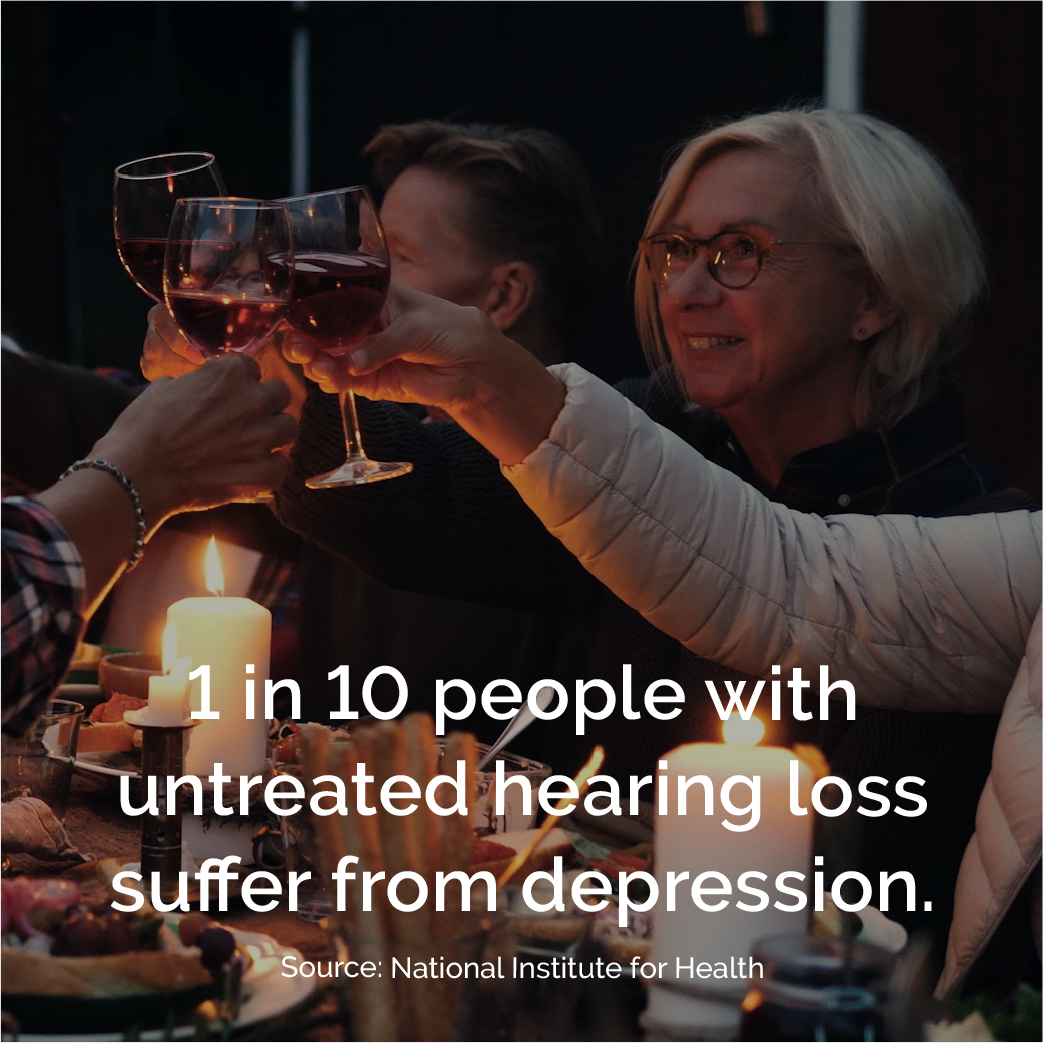Three years ago, I was offered the opportunity to serve as President of the Hearing Industries Association. After working in organizations tackling the challenges of HIV/AIDS, malaria, child injury and more, I was intrigued to learn more about hearing health. I felt challenged by the opportunity to make a difference and help more people lead vibrant, active lives. The ability to hear well is an important contributor to our overall quality of life; it increases social engagement, improves communication, and lowers the risk of depression. Good hearing also is thought to have positive benefits on brain functioning, such as memory, and helps with our overall independence, security, and awareness.
 There are more than 38 million Americans living with hearing loss that occurred because of aging, noise exposure, medical treatment, injury, or genetics. Persons with hearing loss have higher rates of isolation, depression, dementia and falls that require hospitalizations. Research from a Johns Hopkins Medicine has revealed that mild hearing loss doubles the risk of dementia, moderate loss triples the risk, and those with severe hearing loss are 5 times more likely to develop dementia.1 Many people may not be aware of these risks associated with hearing loss, but now that you are, I encourage you to have your hearing checked by an audiologist or hearing care specialist on a regular basis. Hearing loss is one of the most widespread and under-treated conditions in the United States. Americans wait on average eight years to address their hearing loss, putting themselves at greater risk of more serious conditions.
There are more than 38 million Americans living with hearing loss that occurred because of aging, noise exposure, medical treatment, injury, or genetics. Persons with hearing loss have higher rates of isolation, depression, dementia and falls that require hospitalizations. Research from a Johns Hopkins Medicine has revealed that mild hearing loss doubles the risk of dementia, moderate loss triples the risk, and those with severe hearing loss are 5 times more likely to develop dementia.1 Many people may not be aware of these risks associated with hearing loss, but now that you are, I encourage you to have your hearing checked by an audiologist or hearing care specialist on a regular basis. Hearing loss is one of the most widespread and under-treated conditions in the United States. Americans wait on average eight years to address their hearing loss, putting themselves at greater risk of more serious conditions.
May is Better Hearing Month and I have a simple request for everyone, young or old or in-between. Please schedule a hearing health check up with a hearing care professional. We are learning that more teens and younger persons are suffering from some type of hearing loss. Around 1 in 3 persons between the ages of 65 and 74 have hearing loss, and nearly half of those over 75 have difficulty hearing. You can find a hearing professional here. And if you learn that you are a candidate for a hearing device, you can learn more about the technology here. Hearing aids are available at a variety or prices, depending on the technology of the device and professional services. Check out your options for insurance coverage. Most Medicare Advantage plans offer coverage for dental, hearing and vision and if you are a veteran, you may qualify for hearing benefits. We encourage you to be informed about your options and the benefits of acting.
Here's to a long, healthy, active life for everyone.